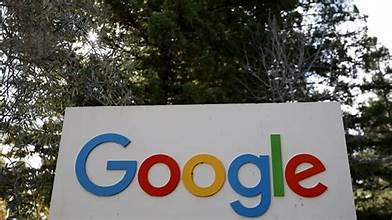Tech giant Google will pay $50 million to settle a major racial bias lawsuit brought by Black employees. The class-action lawsuit accused the company of systemic discrimination in hiring, pay, and promotions. The settlement marks a significant step in addressing long-standing concerns over diversity and equity in Silicon Valley.
The legal action was filed in 2022 by April Curley, a former diversity recruiter at Google. Curley, along with other Black employees, alleged that Google placed Black workers in lower-level roles, paid them less than their peers, and failed to promote them at equal rates.
What Was the Lawsuit About?
According to the lawsuit, Google allegedly maintained a “racially biased corporate culture” that impacted how Black employees were recruited, evaluated, and promoted. The plaintiffs said they were often hired for roles below their qualifications and that the internal review process favored white employees.

Curley, the lead plaintiff, claimed she was hired to improve Black representation at Google but was later fired for speaking out against discriminatory practices. The lawsuit also cited hostile workplace experiences, including microaggressions, stereotyping, and exclusion from key opportunities.
Curley’s complaint painted a picture of a work environment that marginalized Black voices and held them back professionally, despite their skills and qualifications.
What’s in the Settlement?
Under the settlement, Google will pay $50 million in total, with a large portion going to Black employees who were part of the class-action suit. The exact number of affected workers is not confirmed, but estimates suggest it includes over 1,500 Black professionals who worked at Google in various roles since 2014.
Besides the financial compensation, Google has agreed to review its hiring and evaluation practices. As part of the agreement:
- An independent auditor will monitor changes to Google’s internal systems.
- Google will launch a “diversity improvement program” to address hiring biases.
- Promotion and performance evaluation processes will be reassessed for fairness.
- The company will also increase transparency and reporting on diversity goals.
The deal still requires final approval from the court.
Google’s Response
Google has not admitted any wrongdoing but agreed to the settlement to avoid a long legal battle. In a public statement, the company said:
“We’re pleased to resolve this matter and will continue our work to ensure every employee feels respected and treated equally.”
The company added that it is committed to building a more inclusive workplace and will use this moment as an opportunity to improve.
Over the past years, Google has faced criticism from both inside and outside for its lack of diversity in technical and leadership roles. Despite making promises to improve inclusion, progress has been slow.
What This Means for Tech Industry
The $50 million payout is one of the largest racial bias settlements in tech industry history, and it sends a strong message to other big tech firms. Experts believe this case could open the door for similar lawsuits and push companies to make real changes in workplace equity.
Civil rights organizations applauded the settlement. The NAACP Legal Defense Fund said the case shines a light on issues that many Black professionals face in tech.
“This is a victory for every Black tech worker who’s ever felt overlooked, undervalued, or discriminated against,” said a spokesperson for the group.
A Look at Google’s Diversity Numbers
According to Google’s most recent Diversity Annual Report, Black employees made up just 4.4% of its U.S. workforce as of 2023. In leadership roles, that number drops even lower, sparking concerns over the pace of improvement.
Despite investing in training programs, diversity hiring efforts, and inclusive culture strategies, critics say Google and other tech companies are still falling short.
The settlement could be a wake-up call for the entire industry to move beyond surface-level efforts and address the root causes of inequality.
Broader Impacts and Public Reaction
On social media, reactions were mixed. While many users praised the plaintiffs for standing up, others called out the tech industry for taking so long to respond meaningfully to issues of race and fairness.
Activists urged other Black workers in the tech field to speak out if they face similar challenges. Some legal experts believe that we may see more class-action lawsuits like this in the coming years if companies fail to fix discriminatory practices.
Final Thoughts
Google’s $50 million settlement may be seen as a financial figure, but for many Black employees, it represents recognition of their struggles and mistreatment. Whether it leads to long-term change remains to be seen, but it has certainly put pressure on big tech firms to deliver on their diversity promises.
With lawsuits like this gaining attention, the future of workplace equality in tech may finally begin to shift in a more positive direction.
Also visit
- Google Diversity Annual Report – Google’s own report on hiring and representation
- U.S. Equal Employment Opportunity Commission (EEOC) – Official site on employee rights and workplace discrimination
- TechCrunch: Google Diversity Lawsuit – Ongoing tech news coverage
- Reuters: Google Settles Bias Case – Business news coverage on the lawsuit
- The Verge on Tech Industry Diversity – Opinion pieces and data on racial inequality in tech
- Bloomberg: Google Discrimination Case – In-depth financial and corporate insights
Also Read – ‘Squid Game’ Season 3 Trailer Drops With Guns and Surprises






